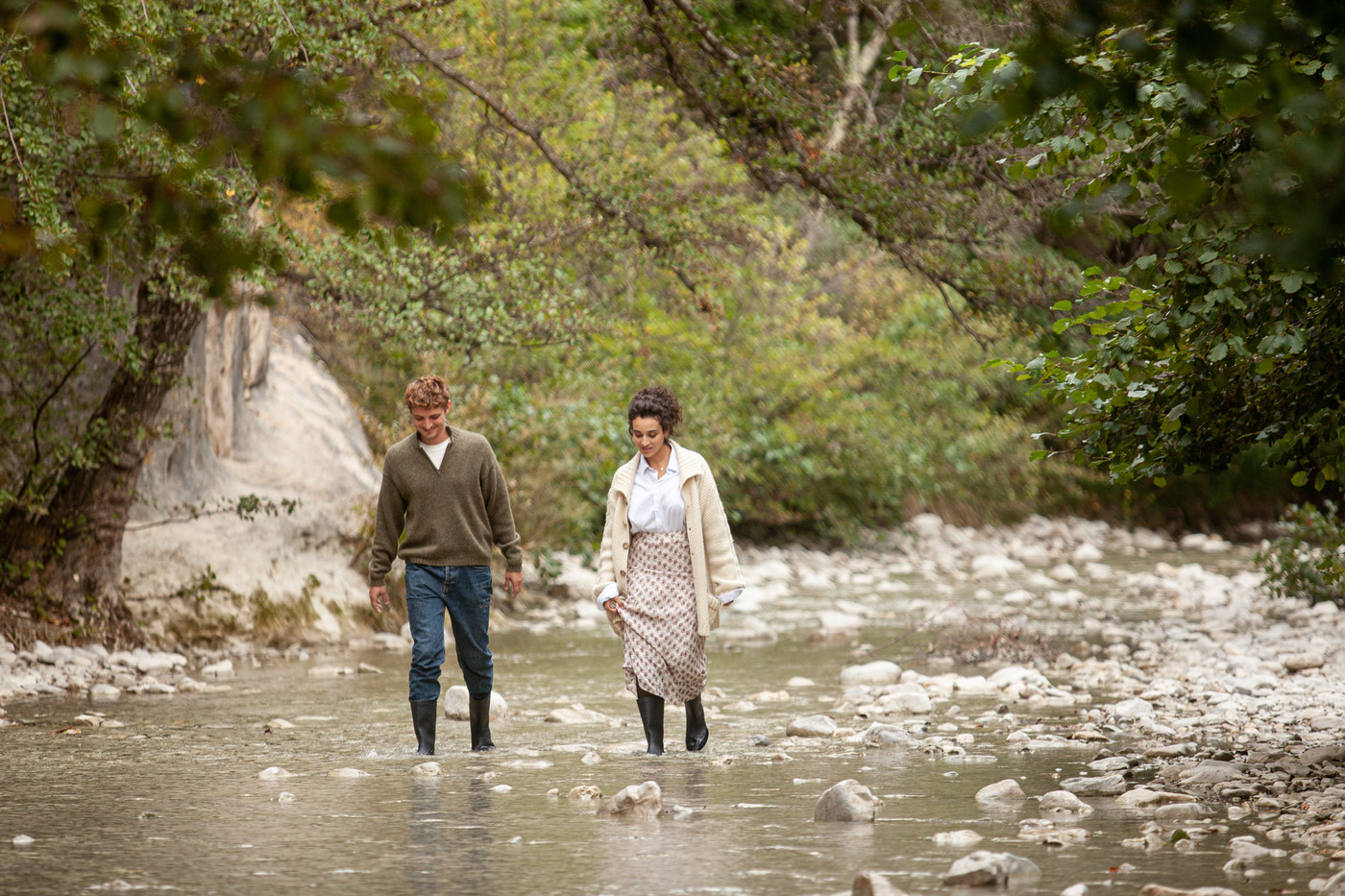Indiscreet stories make the most appealing tales, the stories we aren’t supposed to know, the Love Affair(s) which people want to keep secret. For aspiring novelist Maxime, he figures the best instigator for a successful novel is the mother of inspiration – heartbreak. Taking time away in the French countryside, Maxime is initially staying with his cousin François but instead spends most of his time with François’s pregnant wife Daphné.
From their very first meeting, the pair begin to form an attraction to one another, even if it’s an unspoken one at first. Regaling the other with their tales of heartache and pain, the strands of their intricate lives begin to wrap around branching paths with past lovers as the complexities of romance find themselves in greying shades in Emmanuel Mouret‘s Love Affair(s).
With a Sahara dry humour, Love Affair(s) takes the less anticipated comedic route with larger dramatic narrative than a traditional romantic comedy. There’s a heightened sense of reality and interactions, but nothing in the construction of humorous payoffs is overplayed or ludicrous. Mouret surprisingly (for French cinema) downplays the melodrama, drawing back the heightened tension or accusations and instead aims for a grounded sense of drama and character interaction which discourages judgement.
Instead of a traditional set-up and pay-off, Mouret focuses the humour into awkwardly inserted moments without previous build-up. It’s carried sensationally well by the entire cast, particularly Maxime’s best-friend Gaspard (Guillaume Gouix), whose snobbish dismissal of romance leads to his ironically obsessive relationship and eventual affair with Maxime’s previous partner, Sandra (Jenna Thiam). Gouix and Thiam‘s back and forth, only finding desire in one another when they are attached to someone else, plays into the film’s distinct flair for tempting the audience to judge, then scold them for doing so.
The visual language has a deep understanding of the narrative subcontexts of the film through Laurent Desmet‘s framing, challenging the societal cliches and social backgrounds. It takes the objectional discrimination of infidelity, dishonesty and flirtatiousness and strips back the lust-fueled reasoning to highlight (quite literally in some scenes) the people behind the affairs. Soft lighting is often employed as the story explains the whys of these affairs, and rather than embolden them with vibrant reds or shadows, instead wants to ease the audience into these characters as people.
The performances are sincere; there is genuine chemistry and romance shared between Niels Schneider’s Maxime and Camélia Jordana’s Daphné not merely as a couple, but as individuals. They give such an understated performance that as their passion flourishes, like the characters themselves, the audience is taken aback at just how intensely the pair bubble over. Maxime’s charm is present, but Schneider carries a familiar openness which saves Maxime from coming over as stereotypical or uninteresting.
At just over two hours of what are essentially dialogues tying together numerous plot-threads, the pacing is calibrated in a fashion which pushes the connections between the characters forward just enough to form a coherent story. What happens is that Mouret’s script flows at an undictated pace, and as such nothing feels overly drawn out or cut short. At every perceivable junction for mundane romance, Mouret instead twists the story down a differing route, demonstrating the pitfalls of monogamy but also its blessings.
So does it all come to fruition, with a hokey happy ending? Not at all. Love Affair(s) opts for a grounded outcome, faking out the final moments for a more unexpected conclusion which still strikes just right. There’s an understanding that this is life, this is love – and it’s bloody messy. No one walks away from the film being tarred as an adulterer, and any victims are far from angelic. It toys with our perceptions of relationship dynamics, deconstructing the ideas of jealousy and ownership and the shortfalls that baring our hearts comes with.
Screening as part of the French Film Festival UK 2021
